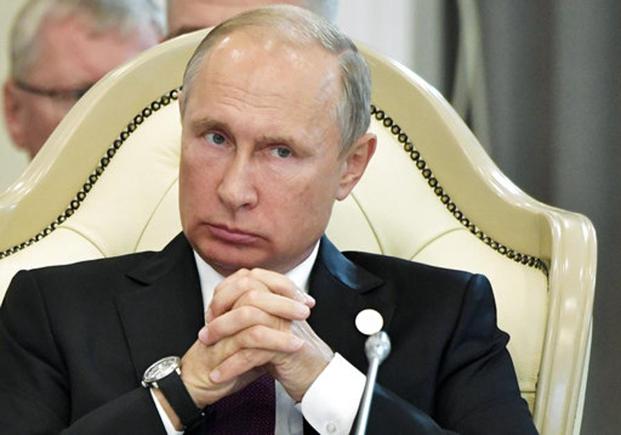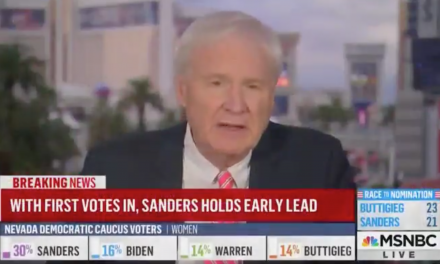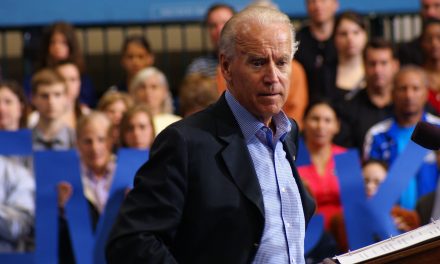Image Credits: Photo: AP.
It could be a saving grace that the Democrats have eleventy billion candidates running for president. I say that because it’s already clear that there will be a sustained and coordinated social media effort to set Democratic voters against each other. It’s incredibly simple to do this and to do it very effectively.
If you create an army of faux-supporters of one candidate who are abusive to real supporters of another candidate, then there’s a good chance that the two camps will have grave difficulty in reconciling for the general election. We saw this in 2016, where fake BernieBros deliberately launched misogynistic attacks and inflamed hard feelings about how the Democratic National Committee handled the primaries. Later on, they called into question whether the Russians had really been responsible for the hacks and promoted alternative explanations like the Seth Rich murder conspiracy story.
This was crippling in its effectiveness. But it only worked as well as it did because there were only two camps to divide. I’m hoping that it will be more of a challenge to divide and conquer the Democrats when there are thirty or more camps to divide. Either way, the effort is underway and it is focused not only on creating hard feelings but on spreading damaging and, in many cases, completely fake information about the candidates.
“It looks like the 2020 presidential primary is going to be the next battleground to divide and confuse Americans,” said Brett Horvath, one of the founders of Guardians.ai, a tech company that works with a consortium of data scientists, academics and technologists to disrupt cyberattacks and protect pro-democracy groups from information warfare. “As it relates to information warfare in the 2020 cycle, we’re not on the verge of it — we’re already in the third inning.”
So far, the bulk of the disinformation campaign has been targeted at four candidates: Kamala Harris, Elizabeth Warren, Bernie Sanders and Beto O’Rourke.
Using proprietary tools that measured the discussion surrounding the candidates in the Democratic field, Guardians.ai identified a cohort of roughly 200 accounts — including both unwitting real accounts and other “suspicious” and automated accounts that coordinate to spread their messages — that pumped out negative or extreme themes designed to damage the candidates.
This is the same core group of accounts the company first identified last year in a study as anchoring a wide-scale influence campaign in the 2018 elections.
Since the beginning of the year, those accounts began specifically directing their output at Harris, O’Rourke, Sanders and Warren, and were amplified by an even wider grouping of accounts. Over a recent 30-day period, between 2 percent and 15 percent of all Twitter mentions of the four candidates emanated in some way from within that cluster of accounts, according to the Guardians.ai findings. In that time frame, all four candidates collectively had 6.8 million mentions on Twitter.
It’s hard to believe that as many as one-in-six of the Tweets you see about a presidential candidate have been generated by a single troll farm, but it’s actually quite possible. Trying to combat this kind of behavior in real time is impossible, so it becomes a game of whac-a-mole.
Democratic voters will not be able to avoid being subjected to these kinds of aggressive influence operations. Many will willingly participate in them when they see it as advantageous to their preferred candidate. They’ll share disinformation because it confirms what they want to believe or because they cynically think it will serve their cause. Whether wittingly or unwittingly, people will do the work of the social media trolls for them.
If you want to be a responsible citizen, you should resist this whole process. Sharing posts that are disparaging of other candidates should be done very selectively, and only after you’ve satisfied yourself that they contain factual information vetted by responsible reporters. When anonymous people behave badly in the name of a candidate, you should presume that they’re not actually supporters of that candidate or even necessarily supporters of the Democratic Party or even necessarily American citizens. Pointing at their bad behavior and sharing it widely to harm a candidate is likely to be exactly what they want you to do.
Refusing to personally participate isn’t going to make the problem go away. But you don’t want to be part of the problem. Every person who abstains from participating in these efforts to deceive and divide is lessening the impact these trolls will have on the process.







